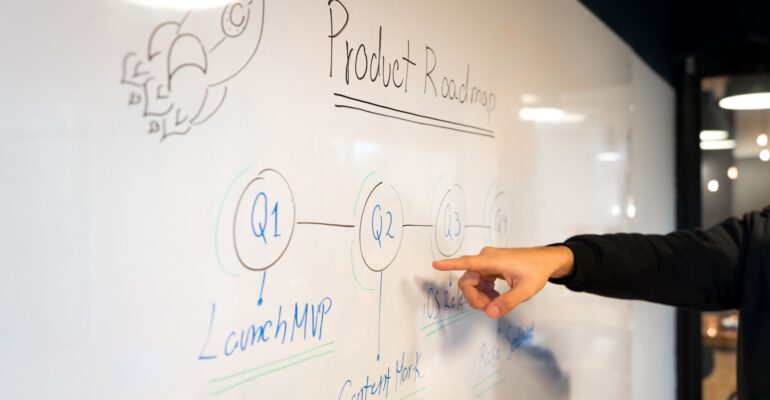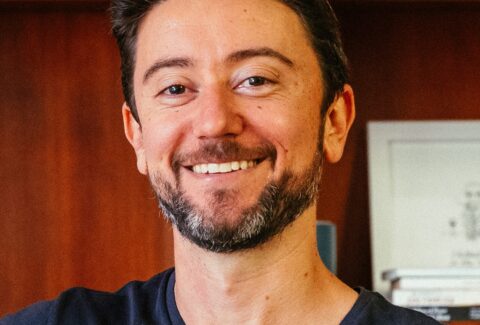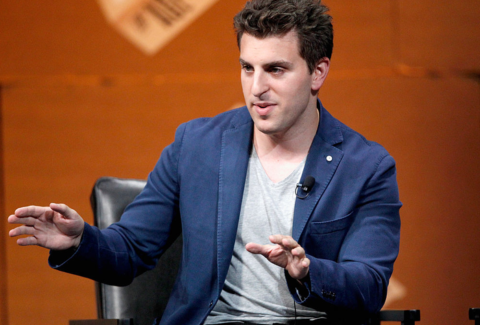The most important question before any project
In September this year, I’d taken the popular course, ‘The Art of Clear Writing‘ by Amit Varma. I’d written about him in an earlier post and had highly recommended the course to anyone who needs to write at work.
The course was eye-opening for me in many ways. I learnt about the dos and don’ts of word choice, sentence construction, rhythm in writing and other obstacles that impede the reader’s understanding.
Oh, but that’s not why I would recommend the course.
The real value from Amit Varma’s course
Don’t get me wrong – the writing guidelines are valuable. After the course, I’ve become a more deliberate writer. I’m more aware of the mistakes I make in my writing. For instance:
– The tendency to use complex words when simple ones will do (for example, instead of the word ‘aware’ in the previous para, I had earlier used the word ‘cognizant’)
– The overuse of brackets within sentences (especially the ones that take the reader in a different direction!)
– The use of lazy adjectives and adverbs. Words like ‘wonderful’, ‘fabulous’, ‘amazing’, ‘really’, ‘incredibly’. I find these tough to avoid, but I need to slowly flush them out of my writing. Every serious writer frowns upon them.
But these are minor tweaks. The micro-instructions. The ‘sau sonar ki‘ of writing. These are useful, but not transformational.
What’s been transformational has been the overarching question that Amit urges his students to focus on. The question that should drive all of your writing. Heck, the question that should drive all of your life.
The question: What are you optimising for?

When I optimised for the wrong thing
Often in life, we waste time trying to optimise for the wrong variables. I remember a story from my consulting days.
From 2005-11, I was working in a management consulting firm (Feedback Infra, which later became Arete Advisors), where my focus area was the healthcare-delivery space. Mainly hospitals.
Clients would be leading corporate hospital chains or Private Equity firms looking to grow and invest in the space. We’d help them solve questions such as: “Should I invest in this hospital chain?”; “If yes, at what valuation”; “Which markets are growing?”; “What’s the competitive landscape in this speciality?” and so on.
To answer the questions, we used to gather information from various sources. The most important source was interviews with doctors and other industry experts.
That’s right, we would go around and meet leading doctors in major hospitals and have conversations with them about their work. We would get insights about the types of procedures being performed, the drivers of growth, the ballpark numbers etc.
Over the years, our team of consultants and analysts had gotten adept at these interviews. We understood industry jargon, we knew the right questions to ask, and we would often find these specialists enjoying their conversations with us.
At a personal level, I went from being a shy kid, afraid of approaching strangers, to initiating conversations with folks I’d never met before and more importantly, being open to getting rejected. It was a great learning experience.
Unfortunately, I felt we were not leveraging it enough.
So here’s what would happen after a detailed meeting with a physician or other expert. We would troop back to office, open up our MS Word programs and write down the key meeting findings over 2-4 pages. These documents (which were for internal use only) were crucial intermediate building blocks for our final output to the client.
And I was obsessed with making the best use of it. I wanted to ensure that all the insights gained by say, me, in an interview with a cardiologist in Chennai in 2008, were available to a consultant who was covering the same region in 2011. The only way to do that would be to have a single searchable database with all the meeting notes – something which we could keep adding to over the years.
And so, for a significant period of time, I was obsessed about building a comprehensive, searchable database of our meeting notes. I would combine several notes together in one document, think-through tagging protocols, and generally be like a broken-record on this topic within the firm.
Sounds like a noble initiative right? Almost as if I was trying to build our version of a collective “Second Brain“.
Well, it didn’t pan out at all. I wasn’t sure how to convince all my colleagues at the firm to work on the project and it eventually faded away from our consciousness. I was disappointed.
I shouldn’t have been though. Here’s why.
In trying to make this project work, I was asking questions like:
– What would be the right process to store these notes?
– What would be the right tool?
– How do we motivate folks to create and upload the notes to the database?
– How do we motivate folks to use the database?
Instead I should have asked just one question: What are we optimising for?
On reflection I would have realised – perhaps I don’t need to optimise for an intensive and time-consuming ‘Second Brain’ for our firm, especially at that stage of our evolution.
You see, we were a really small operation back then – about 10-15 folks in the Healthcare practice. If someone wanted to ask a question, they would be able to get enough valuable inputs just by going through old client presentations and having a few conversations with the consultants who worked on the previous projects. We were not large enough to merit an immense investment of time, energy and money in a knowledge management project.
Instead, if I had asked myself: ‘What should I optimise for?’ I would have realised that it should not be knowledge management. It should have been ‘get more and better-paying clients through marketing’.
We were terrible at marketing our services. Despite knowing a lot about our field, we would hardly publish any content. No online presence, no newsletters, no periodic publications.
If, instead of agonising over knowledge management projects, I had given even 50% of that thought and effort towards creating some good content-marketing material, I would have added more value to the firm and myself.
And over the years, when the time was right, we would have figured out a way to build a knowledge management system – one that included those precious meeting notes!
In short, before you begin any major project, ask yourself: what are you really optimising for?
So, what am I optimising for now?
I was thinking about this question recently in terms of my current work and I remember telling Uday, a fellow storyteller and a good friend, that when I have to choose between projects/assignments, I optimise for a combination of 3 variables: [Money + Fun]/Effort
Money is self-explanatory. Fun is the intellectual stimulation and learning that the work gives me and the type of people I get to work with. Effort is the time I need to spend on the project and the intensity of work required in that time.
Uday’s response? “Hey, that’s cool. Btw, you can call it the 3F model. [Fun + Financials]/Effort”
That sounded much better! And over the last few weeks, I added another element – Fulfilment: The impact I’m able to drive through my work.
And so, I’m optimising for the 4Fs in my work:
[Fun + Financials + Fulfilment] / Effort
The framework is not perfect, but it acts as a good North Star when I need to take key decisions at work.
So, what are you optimising for?







